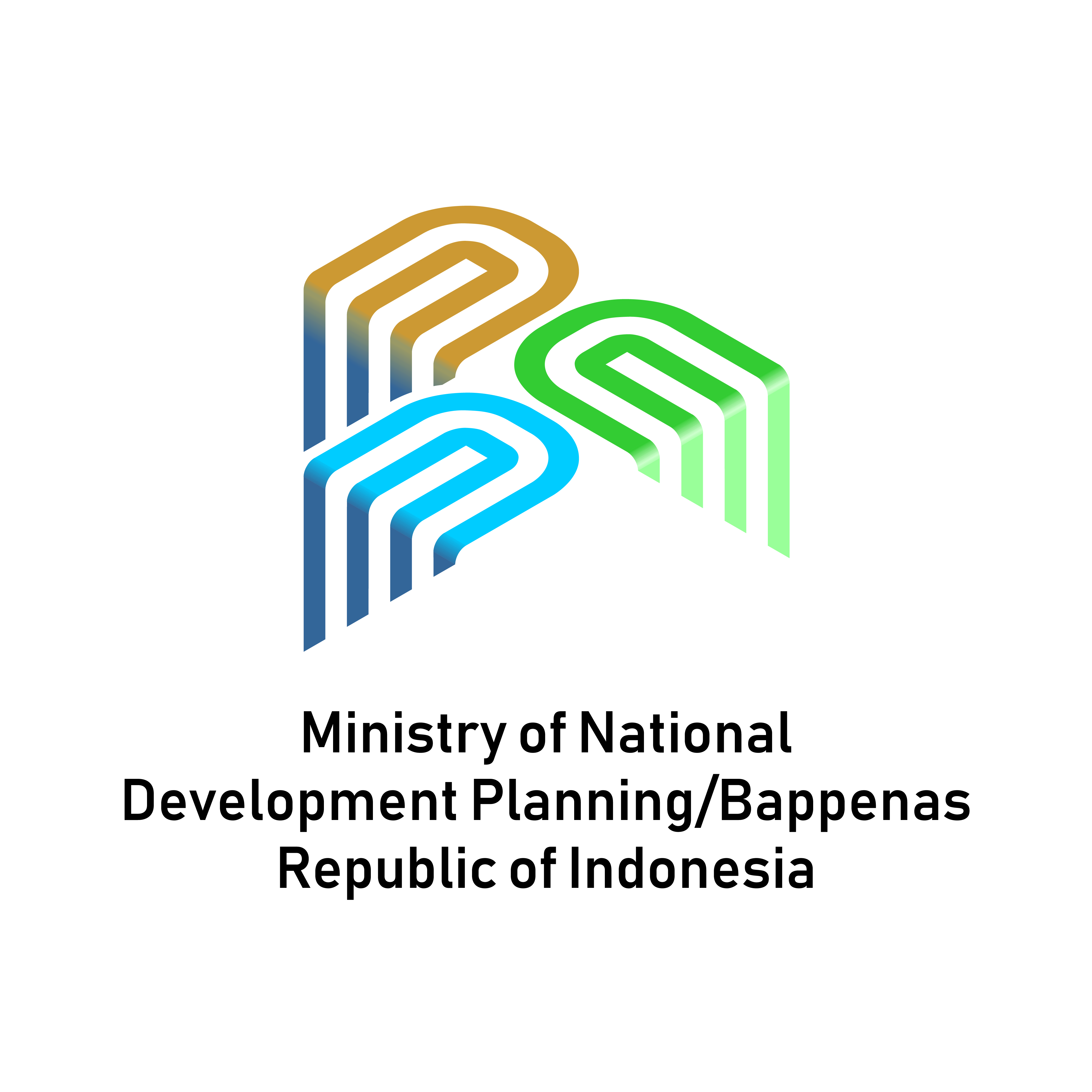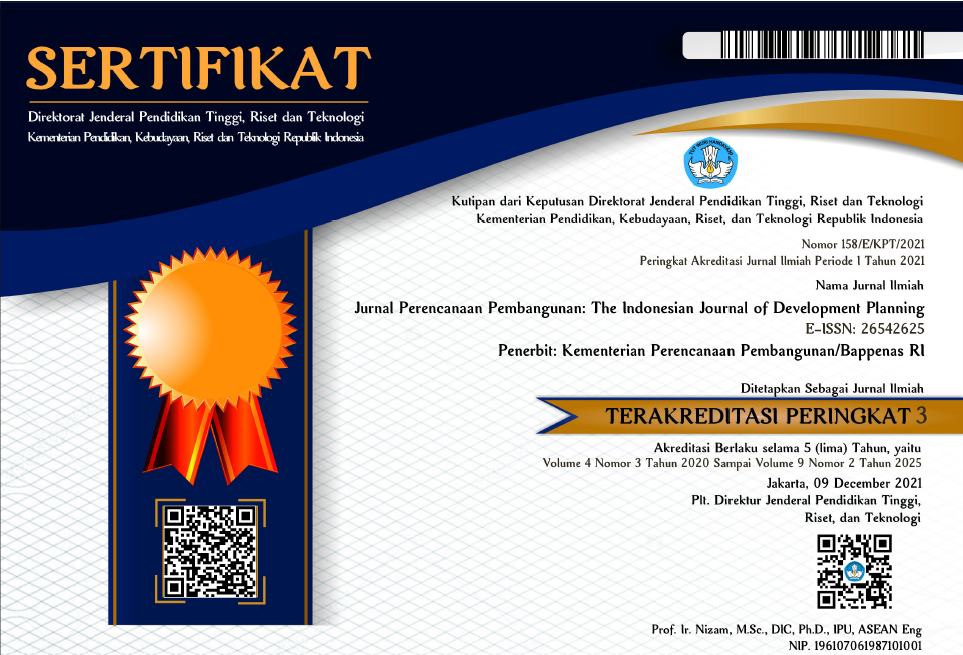Do the Relocated Residents Differ from Public Residents in Rent Overdue? The Case of DKI Jakarta Public Rental Housing
DOI:
https://doi.org/10.36574/jpp.v7i1.432Keywords:
public rental housing program policy, relocated residents, public rental housing, rent overdueAbstract
Housing problems in urban areas are very critical. The increased population growth in DKI Jakarta and the high migration rate from rural to urban areas cause slums. Slums are generated because many households do not have place to live and populate in unauthorized and inappropriate regions. More than 50% of households in DKI Jakarta have yet to own any housing property. In addition, the housing backlog in DKI Jakarta reached 302.319 in 2017. Therefore, housing problems in urban areas are very critical. One way to overcome this issue is to provide a public rental housing program for relocated and general residents with low income—the relocated residents' objective of moving to public rental housing, as they are the victims. The residents lost their livelihoods, the economy was challenging, and it took time to get a job. So, relocated residents in rental public housing are known to have high overdue rent. Previous research about the effectiveness of relocating to public rental accommodations rental public lodgings is minimal. Therefore, public housings create higher rent due in Jakarta. This research's objective is to compare the relocated and general residents in terms of rent overdue in DKI Jakarta public housing. This research analyzes demographic data and public housing rent overdue in 2022. The method used in this research is quantitative with Ordinary Least Square (OLS) regression. The analyzed regression shows that rental public housing status influences rent overdue, and residents with the status relocated residents are more prone to pay the rent overdue, compared to the public residents.
Downloads
References
Ben-Shahar, D. and J. Warszawski (2016). "Inequality in housing affordability: Measurement and estimation." Urban studies (Edinburgh, Scotland) 53(6): 1178-1202.
Bimpson, E., & Manzi, T. (2022). Drivers of rent rent overdue in social housing: an evidence review.
Bronen, R., & Chapin III, F. S. (2013). Adaptive governance and institutional strategies for climate-induced relocated residents in Alaska. Proceedings of the National Academy of Sciences, 110(23), 9320-9325.
Bronen, R. (2021). Rights, Resilience and Residents-Led Relocation: Creating a National Governance Framework. Harbinger, 45, 25.
Callegari, J., Liedgren, P., & Kullberg, C. (2020). Gendered debt–a scoping study review of research on debt acquisition and management in single and couple households. European Journal of Social Work, 23(5), 742-754.
Docter, B. and M. Galvez (2020). "The Future of public housing: public housing Fact Sheet." Washington, DC: Urban Institute.
Dorrington, A. (2014). Public housing relocation and its effect on residents' self-esteem and self-efficacy.
Fields, G. (2012). "Economic Development and Housing Policy in Cuba." Berkeley planning journal 2(1).
Flambard, V. (2019). Housing allowances alone cannot prevent rent rent overdue. Economie et Statistique, 507(1), 53-69.
Goetz, E. (2010). Better neighborhoods, better outcomes? Explaining relocation outcomes in HOPE VI. Cityscape: A Journal of Policy Development and Research, 12(1), 5-32.
Gujarati, D. N., Bernier, B., & Bernier, B. (2004). Econométrie (pp. 17-5). Brussels: De Boeck.
Gurstein, P. C., et al. (2015). The future of public housing: Trends in public housing internationally, School of Residents and Regional Planning, University of British Columbia.
Hartman, C. (1964). The housing of relocated families. Journal of the American Institute of Planners, 30(4), 266-286.
Hsiao, H. (2021). Transformation and issues of public housing policies facing aging society: Case review of Osaka City, Japan. Japan Architectural Review, 4(1), 5-13.
Indah, V. A. (2009). Pengertian Model OLS (Ordinary Least Square) dalam Fear of Floating. Fakultas Ekonomi Universitas Indonesia.
Kemiki, O. A., Ayoola, A. B., Ojetunde, ?., Ogunbajo, R. A., & Kuma, S. S. (2018). Critical Factors Contribut?ng to Rent Rent overdue in Residential Properties in Minna, Nigeria. LAÜ Sosyal Bilimler Dergisi, 9(2), 138-151.
Leviten?Reid, C., MacDonald, M., & Matthew, R. A. (2022). Public housing, market rentals, and neighbourhood characteristics. The Canadian Geographer/Le Géographe canadien, 66(2), 263-277.
See Carroll D. Wright. (1894). The Slums of Baltimore, Chicago, NewYork, and Philadelphia. Washington. pp. 11-15.
Sharafeddin, A., & Arocho, I. (2022). Toward sustainable public housing: A comparison of social aspects in public housing in the United State and Libya. Habitat International, 122, 102513.
Winters, S.; Elsinga, M. (2008). The future of Flemish social housing. J. Hous. Built. Environ. 23, 215–230.
Yang Wenzhong and Wang Gongfan. (1998). "Peasant Movement: A Police Perspective," in Michael Dutton (ed.). Streetlift China. Cambridge. p. 89.
From Books
Davis, M. (2006). Planet of Slums. Verso: London.
Scarpaci, J. L., Segre, R., & Coyula, M. (2002). Havana: Two faces of the Antillean metropolis. UNC Press Books.
From Others
Badan Pusat Statistik. (2020). Data Kependudukan Provinsi DKI Jakarta. Jakarta.
Peraturan Gubernur Provinsi DKI Jakarta No 132 Tahun 2018 tentang Pembinaan Pengelolaan Rumah Susun.
Peraturan Gubernur Provinsi DKI Jakarta Nomor 111 Tahun 2014 Tentang Mekanisme Penghunian Rumah Susun Sederhana Sewa.
Pusat Data dan Informasi Dinas Perumahan Rakyat dan Kawasan Permukiman Provinsi DKI Jakarta. (2022). Data Demografi Penghuni Rumah Susun Sewa Provinsi DKI Jakarta. Jakarta.
Pusat Data dan Informasi Dinas Perumahan Rakyat dan Kawasan Permukiman Provinsi DKI Jakarta. (2022). Data Tunggakan Penghuni Rumah Susun Sewa Provinsi DKI Jakarta. Jakarta.
Downloads
Published
How to Cite
Issue
Section
License
This is an open-access article distributed under the terms of the Creative Commons Attribution-NonCommercial-ShareAlike 4.0 International License. Copyright © Kementerian PPN/Bappenas RI


















